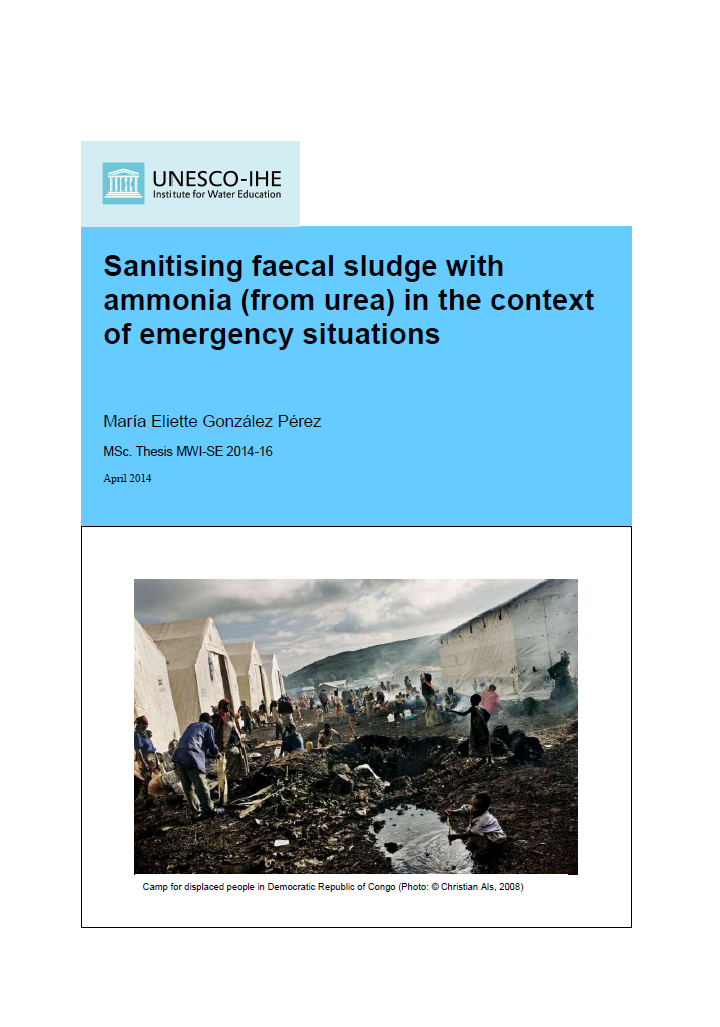Sanitising faecal sludge with ammonia (from urea) in the context of emergency situations Master thesis González P., M. E. (2014)
In an emergency situation, the collection, treatment and disposal of the human excreta and waste in a safe way is one of the biggest challenges to face, regardless the type of disaster. When it comes to faecal sludge management, the traditional desludging methods can often not be appropriate in an acute emergency phase. Consequently, relief organisations aim to apply new and simple approaches and modular technologies that are effective in terms of cost and time.
For this thesis the ammonia-based sanitation by the addition of urea was studied as an innovative approach for faecal sludge treatment. The research was designed to assess the required conditions and factors affecting the formation of the sanitising agent ammonia (NH3).
This report is on the treatment of faecal sludge in emergency situations on the request of WASTE Advisers as part of the Emergency Sanitation Project (ESP) and the S(P ) EEDKITS Project. The ESP project is funded by the US Office for Foreign Disaster Assistance (OFDA) and is a consortium of the International Federation of Red Cross and Red Crescent Societies (IFRC), WASTE and Oxfam GB. S(P )EEDKITS has received funding from the European Union seventh Framework Programme (FP7/2007-2013) under grant agreement No 284931.
Bibliographic information
González P., M. E. (2014). Sanitising faecal sludge with ammonia (from urea) in the context of emergency situations Master thesis UNESCO-IHE, Delft, Netherlands.
Filter / Tags
Faecal sludge treatment processesCamps (emergency or longer term)Case studies in other formatsEnglish

